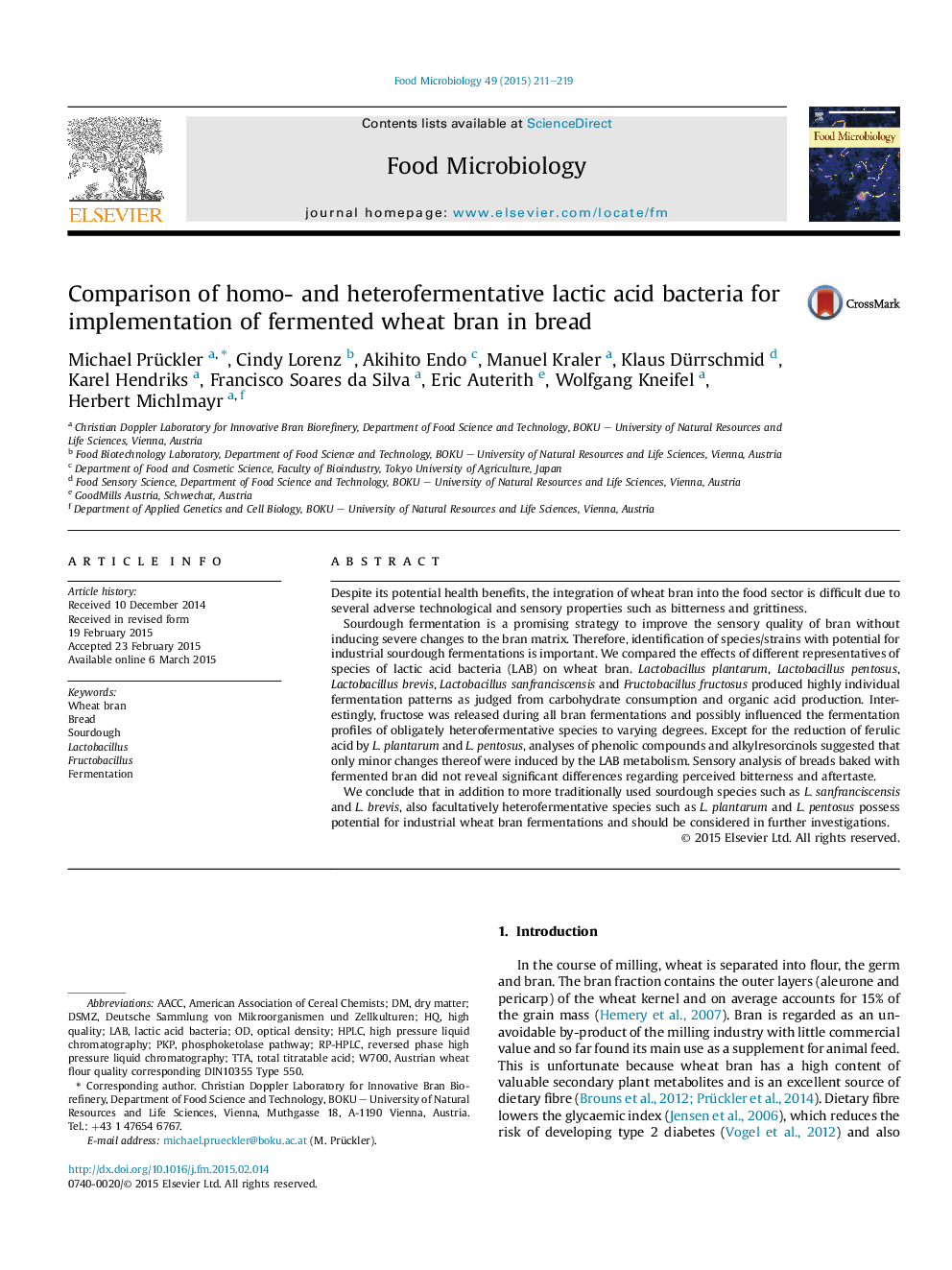| Article ID | Journal | Published Year | Pages | File Type |
|---|---|---|---|---|
| 4362750 | Food Microbiology | 2015 | 9 Pages |
•LAB Fermentation of bran produced individual fermentation patterns.•Fructose was released in all fermentations and can act as an external electron acceptor.•Sensory analysis showed the potential of LAB fermentation to mask perceived bitterness.
Despite its potential health benefits, the integration of wheat bran into the food sector is difficult due to several adverse technological and sensory properties such as bitterness and grittiness.Sourdough fermentation is a promising strategy to improve the sensory quality of bran without inducing severe changes to the bran matrix. Therefore, identification of species/strains with potential for industrial sourdough fermentations is important. We compared the effects of different representatives of species of lactic acid bacteria (LAB) on wheat bran. Lactobacillus plantarum, Lactobacillus pentosus, Lactobacillus brevis, Lactobacillus sanfranciscensis and Fructobacillus fructosus produced highly individual fermentation patterns as judged from carbohydrate consumption and organic acid production. Interestingly, fructose was released during all bran fermentations and possibly influenced the fermentation profiles of obligately heterofermentative species to varying degrees. Except for the reduction of ferulic acid by L. plantarum and L. pentosus, analyses of phenolic compounds and alkylresorcinols suggested that only minor changes thereof were induced by the LAB metabolism. Sensory analysis of breads baked with fermented bran did not reveal significant differences regarding perceived bitterness and aftertaste.We conclude that in addition to more traditionally used sourdough species such as L. sanfranciscensis and L. brevis, also facultatively heterofermentative species such as L. plantarum and L. pentosus possess potential for industrial wheat bran fermentations and should be considered in further investigations.
